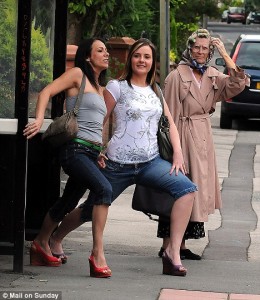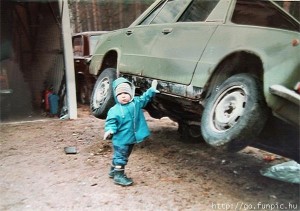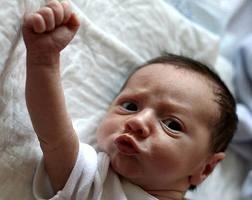Unconscious Power
/But martial arts expert George Xu has been throwing around the terms unconscious and subconscious for a couple of years. I've tried to dissuade him from using them because they have so much psychological baggage. The average person is going to have to drop his or her preconceptions about what unconscious and subconscious mean anyway, why not start with a word they don't know?
George asked me: "When you are watching a great movie and you forget your own body--is that unconscious or subconscious?"
Me: "I don't know. These two terms refer to aspects of the mind which cause us to either act in a way we didn't intend to; or to act in a way we did intend to but didn't know it--and still might not know it even after the act."
The Chinese term jingshen is most often used in the negative. For example, when a student is spacing out in class the teacher will scold, "You've lost your jingshen!" So in a sense jingshen means presence in, or awareness of, ones environment.
 Can we move our body unconsciously? If I am not conscious of a movement, how can I be its cause? On the other hand, how do we know that so called conscious movement is really conscious? Maybe conscious movement is actually unconscious movement observed and then a split second later justified? Maybe conscious movement is actually unconscious movement which we just happen to have planned in advance? Or put another way, maybe all movement is unconscious, but some movement has a kind of mental tension surrounding it, attempting to guide it and control it.
Can we move our body unconsciously? If I am not conscious of a movement, how can I be its cause? On the other hand, how do we know that so called conscious movement is really conscious? Maybe conscious movement is actually unconscious movement observed and then a split second later justified? Maybe conscious movement is actually unconscious movement which we just happen to have planned in advance? Or put another way, maybe all movement is unconscious, but some movement has a kind of mental tension surrounding it, attempting to guide it and control it.Is it possible then, that we could drop this mental tension we normally call "conscious," and replace it with a kind of active spacial awareness? And there by gain some control over unconscious movement? Can we move our bodies using only awareness of our environment? Can actively changing only ones feeling of "presence" actually move the body?
Jo Riley, writing about Chinese Theater, has chosen to translate "qi" in English as "presence." Turning for a moment to the theater realm, all of this talk of unconscious seems more reasonable. Some styles of acting for instance instruct the actor to find a single gesture or movement-idea which represents the character he or she is trying to portray or embody. That gesture is then injected into all the actors stage actions, and from this the actor will unconsciously begin inventing a whole way of moving which looks authentic.
So after a long hard struggle, I might have to admit that the term unconscious is as good as it gets.
An infant baby moves unconsciously. Right? How about a tiger stalking its prey? That one is a little more difficult to pin down. What about a baby tiger? Just kidding.
What about a mother protecting her young? We've all heard the stories of mothers lifting up burning cars to save their children. Is that unconscious power?
Is it possible that we have access to this unconscious power all the time?
(Sometimes I think the pharmaceutical industry would like us to believe that everything from love, to super human strength, to good acting, is just a chemical discovery away. Hormone theory is very enticing, but until I can see in front of me something as complete as the Periodic Table for the whole endocrine system, I'm going to reason that there are other mechanisms involved.)
 This is where I start getting excited. I've begun seeing unconscious power in other people. I can see it in people waiting for the bus. This natural power is in my opinion available all the time when people are relaxed. I see the unconscious power but I also see two forces inhibiting it.
This is where I start getting excited. I've begun seeing unconscious power in other people. I can see it in people waiting for the bus. This natural power is in my opinion available all the time when people are relaxed. I see the unconscious power but I also see two forces inhibiting it.The first inhibitor is conscious intentional movement. It is as if people are trying to drive a car with the emergency brake on and the power steering shut off. Their maneuverability is restricted and they appear to be, in George Xu's words, carrying their own weight.
The second inhibitor is segmentation. This is when we cause individual parts of the body to work independently. For instance, when we sit down to write we turn off most of the balancing movement functions in our body and activate only the fine motor hand and eye coordination. The result of this process is stiffness, which tends to occur at the location of segmentation--in the case of writing, at the shoulders, upper back, neck and for some people the forearms and the backs of the eyes. Any segmentation whatsoever, inhibits power.
 Just as a side note here, my ability to see this unconscious power has developed in conjunction with my own ability to express unconscious power. But I also believe that my own mental training was for a long time inhibiting my ability to see unconscious power in others. The type of analytic anatomic physiological thinking which allows us to see individual body structures like muscles, may be replacing what is actually happening with a mental proxy. And thus, by eventually dropping those complex ideas about what we are, suddenly something that was always there appears.
Just as a side note here, my ability to see this unconscious power has developed in conjunction with my own ability to express unconscious power. But I also believe that my own mental training was for a long time inhibiting my ability to see unconscious power in others. The type of analytic anatomic physiological thinking which allows us to see individual body structures like muscles, may be replacing what is actually happening with a mental proxy. And thus, by eventually dropping those complex ideas about what we are, suddenly something that was always there appears._______
How did we get here? Are humans victims of our own success?
Unconscious power is unconscious for a reason. Human society requires us to plan out our intentions so that we can build things large and small, manifest visions, and carry out tasks. It also allows us to be delicate and careful so that we don't break the things we create.
Unconscious power is familiar to everyone. I guess it is how we felt as small children. To a normal adult, unconscious power feels disorienting, vulnerable, weak and clumsy.
